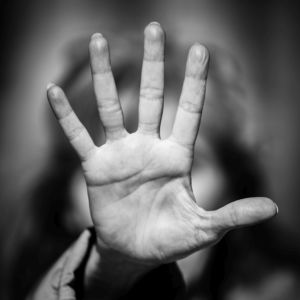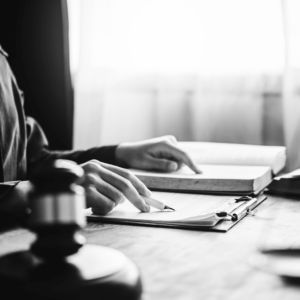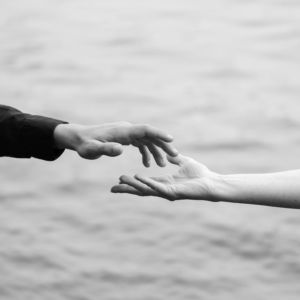California Adult Survivors Act: Fighting for Survivors of Adult Sexual Abuse
Survivors of Adult Sexual Abuse Can Now Take Legal Action
For nearly four decades, we have represented sexual abuse survivors. We believe in giving survivors knowledge, tools, and opportunities for empowerment, healing, and justice. Adult survivors of sexual abuse in California now have rights to take legal action for a limited time.
Unfortunately, adult sexual abuse is common. Every 68 seconds, another American is sexually assaulted. 1 out of every 6 women, and 1 out of every 33 men, in America have been the victim of an attempted or completed rape.
California Adult Victims Act – Attorneys Fighting for Adult Survivors of Sexual Abuse
On April 30, 2024, the California assembly passed Assembly Bill 2587 (California Adult Victims Act), which allows survivors who were sexually abused on or after their 18th birthday to take legal action. The California Adult Victims Act clarifies that both a perpetrator of a sexual assault and an entity who was responsible for the assault are held accountable for the harm inflicted on survivors. The bill would allow adult survivors of sexual abuse to file a claim until December 31, 2026.
The California Adult Victims Act builds upon California statutes, which recognize that it can take years for many survivors to come forward due to trauma, stigma, and fear of backlash, shame, self-blame, or other complex factors. The California Adult Victims Act ensures that survivors of sexual assault can continue to come forward anonymously while maintaining the integrity of the judicial process.
AB 2777 allows some survivors of sexual assault in California to bring a civil action for damages suffered as a result of sexual assault.
California Governor Gavin Newsom signed into law the Sexual Abuse and Cover-Up Accountability Act (AB 2777). Survivors who were sexually assaulted as adults in California now have a chance to expose their perpetrators and those who covered up the abuse.
California’s Sexual Abuse and Cover-Up Accountability Act specifically calls out how non-disclosure agreements (NDAs), or confidentiality agreements, are used to cover-up sexual assaults or harassment. Powerful institutions and intimidating perpetrators often manipulate victims into signing NDAs, saying it’s “just a formality”. Oftentimes, victims are not given a chance to fully read the NDA or consult with an attorney. In reality, when a survivor signs an NDA, they are forced into legal silence and not permitted to discuss their abuse or name their abuser publicly.
How Perpetrators & Corrupt Institutions Silence Survivors & Empower Predators
- Grooming
- Threats to hurt family, loved ones or friends
- Reminding the sexual abuse victim of the perpetrator’s powerful connections
- Continued insistence that “no one will believe” the victim
- Verbal abuse that often results in lower self-esteem or self-worth
- Increased isolation over time, making it less likely the victim will confide in others
- Overall coercion, threats, & extreme harassment
- Aggressive legal strategies meant to intimidate and silence the victim
- Non-disclosure agreements (NDAs)
“Survivors should never feel ashamed of what happened to them. Perpetrators are expert, calculated manipulators.” – Jeff Anderson, attorney & advocate
The majority of survivors of sexual abuse wait years, if not decades, to tell someone about being abused. Below are some of the reasons survivors wait to disclose their abuse:
Why Sexual Abuse Survivors Often Wait to Disclose Abuse
- Shame and thinking the abuse was in some way their fault
- Fear that the perpetrator will find out and will retaliate
- Fear that their friends, coworkers or family will find out
- Apprehension that they will not be believed
- Anxiety that talking about the sexual abuse will be painful and triggering
- Fear of the authorities or fear of the unknown process of a legal consultation
- Non-disclosure agreements or other legal threats or coercions
The Majority of Sexual Abuse Victims Know Their Perpetrator
Statistics on Sexual Abuse
Sexual abuse survivors often feel isolated and feel like no one else understands what they are going through. Statistics confirm that survivors of abuse are not alone. They also demonstrate that we have a long way to go in holding perpetrators, and institutions that cover up their crimes, accountable.
- Most victims know their perpetrator, de-bunking the common myth that abusers are typically strangers.
- Females ages 16 – 19 are 4 times more likely than the general population to be victims of rape, attempted rape, or sexual assault.
- Women between the ages of 18 and 24 experience the highest rates of rape and sexual assault victimizations.
- Only 33.6% of rape and sexual assaults are reported to the police.
- Indigenous people are twice as likely to experience rape or sexual abuse compared to other races.
- Approximately 70% of sexual assault victims experience moderate to severe distress, a larger percentage than any other violent crime.
- 38% of sexual assault victims experience work or school problems, which can include significant problems with a boss, coworker, or peer.
If you are concerned about your privacy, or remaining anonymous, you can learn more about that in our Questions & Answers section on our website.
Frequently Asked Questions
Below are a few questions many sexual abuse survivors have. Our Questions & Answers page has a robust section of frequently asked questions, answers, and survivor resources.

What if I Didn’t Fight Back or Say No? I’m an Adult and Should Have “Known Better”. Do I Deserve Justice?
Yes. Every Sexual assault survivor deserves justice, no matter what. It is normal for survivors to feel shame about the abuse, but it’s important for survivors to know the abuse is not their fault. Perpetrators are expert manipulators, and they know exactly how to target, control, manipulate and silence their victims.

What if the Perpetrator That Abused Me is Dead? Do I Still Have Legal Options?
There is a common misconception that if a perpetrator is dead that, 1. The survivor does not have legal options and, 2. There is no longer a safety risk to the public. Typically, neither of these claims are true. Even if the perpetrator is dead, survivors can usually still take legal action. A survivor’s lawsuit may provide evidence needed to substantiate the experience of other victims. Additionally, if the abuse was covered up by an institution (university, corporation, etc.) taking legal action may prevent the institution from continuing to cover-up abuse by other perpetrators.

I’m Not Sure If I Qualify to Take Action Under Any Current Laws. What Should I Do?
Even if you think you don’t qualify under the California Adult Victims Act, you should consult an attorney. We recommend contacting a trauma-informed law firm that communicates with compassion, patience and understanding; this vastly improves the experience for the survivor. After contacting an attorney, a survivor should walk away from the conversation feel empowered and knowledgeable in what their options are.

I’m a Male Survivor and am Scared and Ashamed to Come Forward. Will People Know Who I Am?
Sexual abuse is stigmatized in our society, arguably even more so for men. Being ashamed is a feeling many survivors experience. Many survivors do not want others to know about what happened to them, and that is okay. We take the privacy and confidentiality very seriously. When a lawsuit is filed, it is filed publicly and that is not something we are able to change. However, a lawsuit can usually be filed under a pseudonym, like John or Jane Doe. That way, a survivor’s identity can remain anonymous. This typically allows for any identifying details of a lawsuit to remain private. However, if a perpetrator or parish is identified in the lawsuit, there is a legal right for them to be made aware of the lawsuit and to obtain a copy of the filed lawsuit.

I’m Nervous to Reach Out as I Have Never Told Anyone About My Abuse. What Should I Expect?
Many of the survivors that call us have never told anyone about their abuse before. We understand how difficult it can be to take that step. Before reaching out to us, it may be helpful to take a look at our Questions & Answers page; it has a lot of answers to common questions survivors often ask. In that section, we answer the common question: What is Legal Consultation Like? and go through what survivors can expect when they reach out to us.

I Don’t Have Any “Proof” or “Witnesses” of the Abuse. Will Anyone Believe Me?
When survivors call us, they are believed, listened to, and treated with compassion. Perpetrators often do everything they can to make sure that victims don’t have “evidence” to substantiate that the sexual abuse took place. Other times, survivors—out of fear and/or shame—will get rid of photos, gifts, letters, and other items.
An experienced lawyer will explain the civil justice process, how survivors can support their case, and how the institution that covered up the abuse will most likely be in possession of materials or documents that will support the survivor’s account. Helping identify the strength of a legal case is one of the reasons why survivors want an experienced sexual abuse attorney.
Every Survivor’s Journey Towards Healing is Different. Hear Their Stories.
We have the honor of witnessing the courage of the survivors we work with, every day. Sharing these inspiring videos is another way that we can remind everyone who has been victimized by sexual abuse that they are not alone. See our Survivor Testimonials page to hear from more survivors.
Tom Emens
“I don’t want to hide anymore, I don’t want to be helpless anymore. I want to be empowered.”
When Tom was ten years old, his priest, Msgr. Thomas Mohan, began sexually abusing him – the abuse lasted for over a year and robbed Tom of his innocence. For decades, he worked to heal and waited for an opportunity to seek justice. In 2020, Tom filed a legal claim for the abuse he suffered as a child. Since then, he has become a vocal advocate for survivors, saying that he wants to use his voice and courage so that other survivors know they aren’t alone.
Monica Perez Jimenez
“I didn’t even realize what was actually happening to me…but I knew it wasn’t right.”
When she was 14 years old, Monica Pérez Jiménez was sexually abused by her teacher, Louis Tambini, at Loyola School in Manhattan. Like so many other survivors of child sexual abuse, Monica suffered for decades in silence and shame, not sure how to share her secret or who she should tell. Eventually, Monica found the courage to share her truth.
Aimee Galicia-Torres
“For years I suffered in silence…it took a toll on me, but I think the bigger toll was not saying anything.”
Aimee Galicia-Torres was only eight years old when a priest who was also a family friend molested her at an aunt’s house. The sexual abuse went on for four years. In 2020, Aimee filed a lawsuit against the Archdiocese of Los Angeles under the California Child Victims Act for their negligence in the hiring and supervision of Galicia-Torres’ abuser, Father Honesto Bismonte. By speaking up, Galicia Torres has restored a sense of hope she hadn’t felt in a long time.
If you were sexually abused as an adult, you deserve justice and healing. Contact us for a compassionate, confidential conversation.

